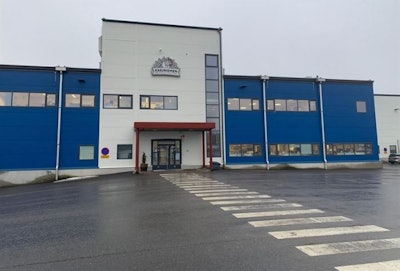
Negotiations are underway to reorganize working at HKScan plants in Rauma and Eura in Finland, according to the company. Under this latest strategy, annual savings of EUR3 million (US$3.12 million) are expected from 2023.
Behind the plan lies the firm’s targets to improve its competitiveness under challenging current market conditions. At the same time, HKScan aims to secure a strong position in the poultry products category for the future. This sector is seen as both strategically important and with the potential for further growth, the company says.
To achieve the necessary improvements to efficiency for the future, the firm reports it has been reorganizing and updating its operating methods since 2020.
Among these was investment in its poultry processing facility at Rauma in 2020-2021. However, the changes made have not delivered fully on raising cost efficiency and profitability, according to Jari Leija, HKScan’s EVP for the Business Unit Finland.
“We have planned to continue our development work by reorganizing our working methods and operations,” said Leija. “Improving cost efficiency is particularly important now, when cost inflation has driven up costs sharply. With the planned changes, we are building a stronger base for the future profitability of our poultry business.”
It is expected that the measures will impact 210 employment contracts for the Rauma facility. Impacting around 600 employees, the negotiations are expected to result in termination or significant changes in employment contracts for the Rauma workforce.
However, no job reductions or substantial changes are planned for the poultry business at the unit in Eura. Furthermore, no changes are planned for HKScan’s other operations in Finland.
Sales up but profitability down for first quarter
In its recently published report for the January-March 2022 period, HKScan’s net sales were around 4% higher year-on-year at just over EUR437 million (US$455 million). Increased sales were achieved through both retail and food service channels, and in all four of the firm’s home markets. As well as Finland, these are in Sweden, Denmark, and the Baltic states.
Compared to a negative figure of EUR1.1 million for the same period of 2021, first-quarter 2022 Earnings Before Interest and Taxes (EBIT) deteriorated further to minus EUR8.5 million. This deviation was attributed mainly to negative performance in the Baltics.
Prices for inputs such as energy and feed grains have been driven to record levels, reports HKScan. Already rising at the end of 2021, the invasion of Ukraine exacerbated this trend. To secure the supply of meat supplies essential to its business, HKScan raised the prices it pays to its producers, but much faster that it expected. However, improvements achieved to its sales prices did not fully compensate for HKScan’s own rising production costs.
To secure positive profit development and prevent negative performance developments, the company reports that its operational focus has turned to short-term measures since the war Ukraine began.
Confident in its ability to improve performance through the rest of the year, HKScan reports that its outlook for 2022 remains unchanged.
More on HK Scan
In April, HKScan announced two new senior appointments.
In its results for the full fiscal year 2021, HKScan reported that profitability was down year-on-year. By that time, rising costs of production had cancelled out an increase in sales revenue. From its four operations — in Finland, Sweden. Denmark and the Baltic states — net sales for the last year amounted to EUR1.8 billion.
With annual slaughterings of around 93 million birds, HKScan is among the top 40 poultry meat companies in Europe, according to the WATTPoultry.com Top Poultry Companies survey.















